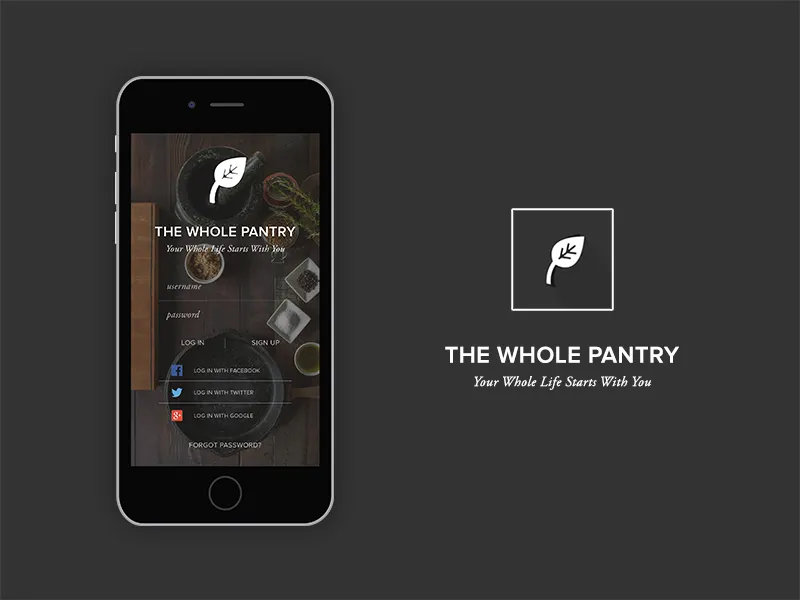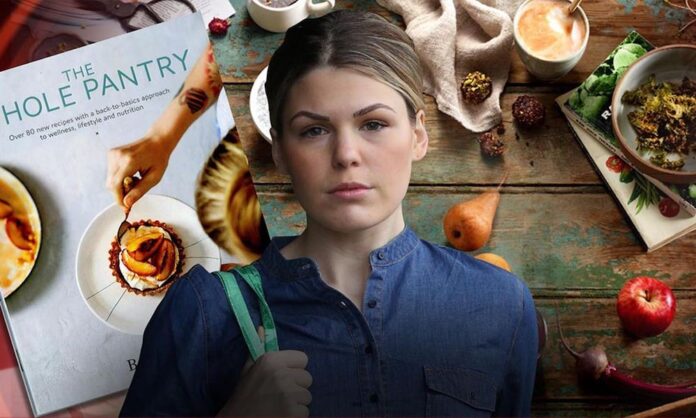The Whole Pantry App was a highly very popular health and fitness app that seemed to promise to help users that they live a more holistic and healthy lifestyle. It always provided access to clean-eating recipes with its nutritional advice, and wellness tips also and making it a go-to resource for those looking to improve their diet and well-being. However, its rise and fall serve as a powerful lesson in the importance of verifying health claims and the potential consequences of misinformation in the wellness industry.
The Vision Behind The Whole Pantry App
This app was launched by the women who is very inspired for helping the peoples named Belle Gibson. She is an Australian wellness blogger and also a good influencer who earns international attention for her claims of healing terminal cancer through diet, natural remedies, and alternative medicine. Her story resides with millions of people in the whole world, especially those who are looking for natural approaches to health.
The Whole Pantry App was marketed as a “one-stop shop for wellness”, offering:
- Whole-food, plant-based recipes that focused on clean eating and avoiding processed ingredients.
- The Holistic health & wellness advice, which promoting natural living and lifestyle changes.
- The mindfulness & self-care tips to improve mental and emotional well-being.
It quickly gained traction, was featured as one of Apple’s Best Apps of 2014, and was even set to be included in the launch of the Apple Watch.
The Rise and Fall: What Went Wrong?
While this app uses content itself it was widely appreciated in many regions, the controversy surrounding Belle Gibson’s fraudulent health claims which led to its downfall.
False Health Claims and Legal Issues
Belle Gibson had built her brand like around the claim that she had cured her brain cancer alone through clean and green eating and alternative medicine without any medical intervention. However, the investigations later revealed that she had never been diagnosed with cancer at all means she lied most of the peoples where she claimed.
When journalists and former associates started questioning the legitimacy of her story, inconsistencies in her claims surfaced. In 2015, she admitted that she had fabricated her cancer diagnosis. This revelation led to a public anger, and it take legal action, then the removal of The Whole Pantry App from digital platforms.
Legal Consequences
In the year 2017, Belle Gibson was found totally guilty of misleading the public and deceptive conduct by the Federal Court of Australia. She was fined legally of $410,000 AUD for falsely claiming that the proceeds from her book and app sales would be donated to charities.

Lessons Learned from The Whole Pantry App Scandal
1. The Dangers of Health Misinformation
The Whole Pantry App was marketed as a tool for holistic well-being, but it was built on false health claims. This case underscores the dangers of misinformation in the wellness industry, where unverified advice can mislead vulnerable individuals.
Many people seeking alternative treatments for serious illnesses may avoid or delay proper medical care, putting their lives at risk. This highlights the importance of evidence-based health information and consulting licensed medical professionals before making health-related decisions.
2. The Role of Social Media & Influencers in Health Advice
Belle Gibson’s influence grew rapidly through social media, where personal stories and wellness trends spread quickly. The case serves as a warning about the unregulated nature of health influencers, who can shape public perceptions without medical credentials.
Consumers should always fact-check health claims, look for scientific evidence, and consult professionals rather than blindly following wellness trends promoted online.
3. The Responsibility of Tech Companies
Tech giants like Apple played a role in the app’s early success by promoting it as a top-rated wellness app. However, the scandal highlighted the need for better vetting processes before featuring health-related applications.
Today, many app stores and online platforms have stricter policies regarding health and wellness claims, ensuring that misinformation does not spread as easily.
What Are Some Alternative Wellness Apps?
If you’re looking for trustworthy wellness and health apps, here are a few that provide evidence-based resources:
- MyFitnessPal – A comprehensive nutrition and fitness tracker that helps users manage their diet and exercise.
- Headspace – A leading app for mindfulness and meditation, backed by scientific research.
- Yummly – A recipe app with a focus on healthy eating, allowing users to personalize their dietary preferences.
- Nike Training Club – Provides workout plans and fitness guidance from professional trainers.
- Lifesum – A diet and nutrition app that helps users track their food intake with a focus on balanced eating.
Final Thoughts
The Whole Pantry App was a promising idea that provided practical advice on wellness and health. But it was founded on dishonesty, which resulted in one of the largest scandals in the wellness sector. This example serves as a warning to:
✅ Check health claims before adhering to wellness trends;
✅ Consult a doctor rather than depending only on influencers;
✅ Watch out for apps and products that make exaggerated claims about their health.
Social media and technology have made health information more widely available, but it’s important to distinguish between false claims and advice that is supported by science. For a healthier living, always double-check your sources and give evidence-based wellness practices first priority.




